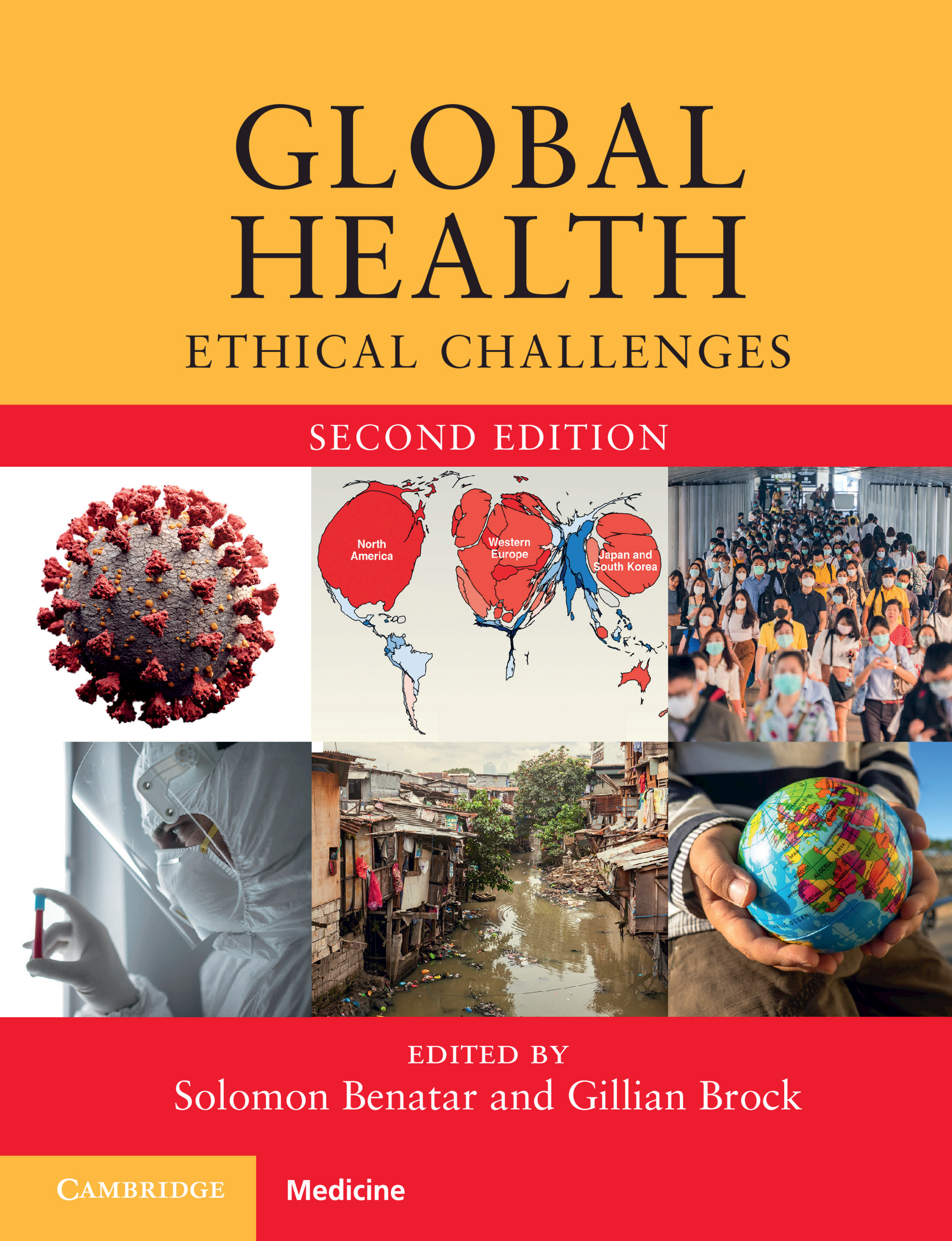Book contents
- Global Health
- Global Health
- Copyright page
- Contents
- Contributors
- Introduction
- Section 1 Global Health: Definitions and Descriptions
- Section 2 Global Health Ethics, Responsibilities, and Justice: Some Central Issues
- Section 3 Analyzing Some Reasons for Poor Health and Responsibilities to Address Them
- Section 4 Environmental/Ecological Considerations and Planetary Health
- Chapter 20 The Environment, Ethics, and Health
- Chapter 21 Ecological Ethics, Planetary Sustainability, and Global Health
- Chapter 22 Mass Migration and Health in the Anthropocene Epoch
- Chapter 23 Animals, the Environment, and Global Health
- Chapter 24 Justice and Global Health: Planetary Considerations
- Section 5 The Importance of Including Cross-Cultural Perspectives and the Need for Dialogue
- Section 6 Shaping the Future
- Index
- References
Chapter 24 - Justice and Global Health: Planetary Considerations
from Section 4 - Environmental/Ecological Considerations and Planetary Health
Published online by Cambridge University Press: 04 February 2021
- Global Health
- Global Health
- Copyright page
- Contents
- Contributors
- Introduction
- Section 1 Global Health: Definitions and Descriptions
- Section 2 Global Health Ethics, Responsibilities, and Justice: Some Central Issues
- Section 3 Analyzing Some Reasons for Poor Health and Responsibilities to Address Them
- Section 4 Environmental/Ecological Considerations and Planetary Health
- Chapter 20 The Environment, Ethics, and Health
- Chapter 21 Ecological Ethics, Planetary Sustainability, and Global Health
- Chapter 22 Mass Migration and Health in the Anthropocene Epoch
- Chapter 23 Animals, the Environment, and Global Health
- Chapter 24 Justice and Global Health: Planetary Considerations
- Section 5 The Importance of Including Cross-Cultural Perspectives and the Need for Dialogue
- Section 6 Shaping the Future
- Index
- References
Summary
When I started to work in Pittsburgh, a journalist called with a request for an explanation about infant mortality. Recent surveys had shown that infant mortality in some neighborhoods of Pittsburgh was higher than in developing countries such as Nicaragua and the Philippines. These findings caused an uproar on social media. How was this possible? In 42 countries, infant mortality rates are lower than in the United States. For every 1,000 American babies born, an average of 5.82 will die before their first birthday. In Pennsylvania, the average infant mortality rate is 5.9. In Pittsburgh, the average is 6.65, but in some areas it is up to 22, especially among African-American populations. Americans, unaccustomed to not being in a leadership role, cannot imagine why such disparities occur (Smith, 2017).
- Type
- Chapter
- Information
- Global HealthEthical Challenges, pp. 316 - 325Publisher: Cambridge University PressPrint publication year: 2021



